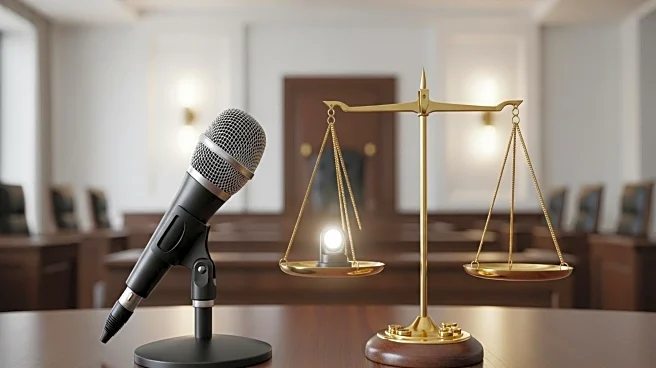What's Happening?
A London judge has dismissed a terrorism charge against Liam Óg Ó hAnnaidh, a member of the Irish-language rap group Kneecap. The charge was related to the display of a Hezbollah flag onstage, which is banned in Britain as Hezbollah is considered a terrorist organization. The judge ruled that the charge was not brought in the correct form and was outside the statute of limitations.
Why It's Important?
The dismissal of the terrorism charge against the Kneecap rapper highlights the legal challenges in prosecuting cases related to political symbols and free speech. It underscores the complexities of balancing national security concerns with artistic expression. This decision may influence future legal proceedings involving artists and political activism, impacting how such cases are approached by prosecutors and defended in court.
What's Next?
Following the court's decision, Kneecap may continue to face scrutiny over their political statements and performances. The ruling could lead to discussions about the legal boundaries of artistic expression and the display of political symbols. It may also prompt debates on the role of artists in political activism and the extent to which they can express controversial views.
Beyond the Headlines
The case involving Kneecap raises broader questions about the intersection of art, politics, and law. It highlights the challenges artists face when engaging in political discourse, potentially influencing cultural and legal norms around free speech. The decision may contribute to ongoing debates about the limits of artistic expression and the responsibilities of artists in politically charged environments.










